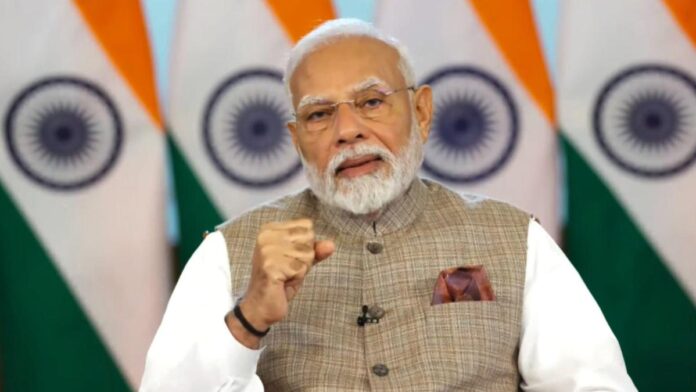PM Narendra Modi on Saturday said there is a need to set up five-six more cooperatives like Amul to ensure better prices for farmers’ produce.
Inaugurating the Grameen Bharat Mahotsav 2025 in Delhi, Modi emphasised that the government is moving forward with the mantra of national development through rural development.
Modi also stressed upon the need to create more farmer producer organisations (FPOs). He said FPOs are playing a big role in ensuring better prices for farmers’ produce. “Milk production is currently providing the highest returns to farmers. We need to establish five-six more cooperatives like Amul with a nationwide reach,” he said.
Also Read Prosperity through cooperation Building rural resilience Budgeting for peasants, planet Reforming agriculture marketing
The Gujarat Cooperative Milk Marketing Federation, the parent of popular milk brand Amul, ensures 80% of every rupee spent by consumers goes to dairy farmers. To promote the cooperative sector, the government established the ministry of cooperation in 2021. Around 70,000 primary agricultural credit societies (PACS) are being computerised to ensure that farmers and villagers get better product value, thereby strengthening the rural economy.
“When intentions are noble, the results are satisfying”, said Modi, pointing to a survey that revealed that compared to 2011, consumption in rural India has nearly tripled, indicating that people are spending more on their preferred items. He noted that previously, villagers had to spend more than 50% of their income on food, but for the first time since independence, the expenditure on food in rural areas has fallen below 50%.
Modi highlighted that as a result of his government’s efforts, 250 million people have been lifted out of poverty in the past 10 years, with the majority being from rural areas. He mentioned a recent study by the State Bank of India, which revealed that rural poverty in India has decreased from approximately 26% in 2012 to less than 5% in 2024.
Emphasising the need to work on diversifying rural income, the PM highlighted the importance of making irrigation affordable, promoting micro-irrigation, creating more rural enterprises, and maximising the benefits of natural farming for the rural economy.
He also highlighted the importance of linking self-help groups with micro and small industries (MSMEs) to meet the demand for their products across the country.
» Read More


